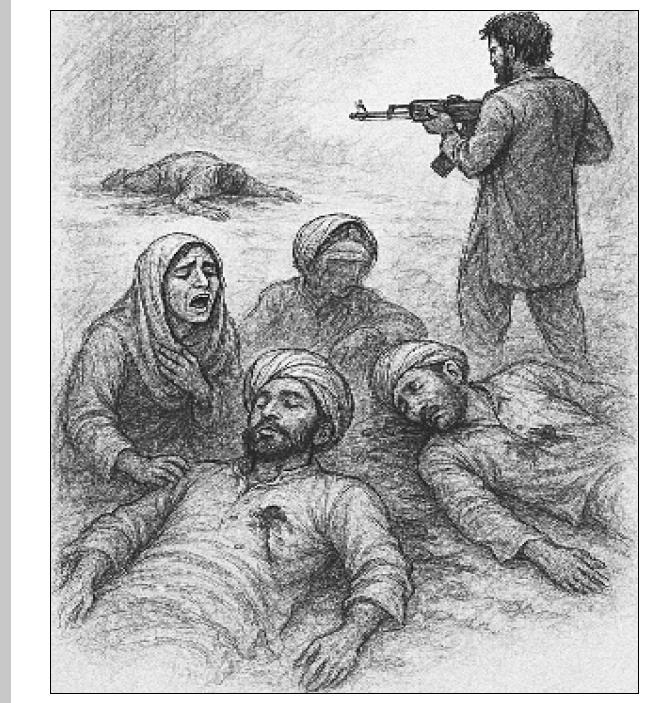Silence over recent killings is criminal
2025-07-25
THIS is with reference to the report `Armed men kidnap and kill nine passengers in Balochistan` (July 11) and the letter `Victims` blood will follow the culprits` (July 16). The incident was unfortunate, but surely not an isolated one. Since April 2024, some 60 people hailing from Punjab have been murdered across Balochistan in similarly orchestrated incidents.
The victims had no particular affiliations and they were not involved in any conflict or enmity; they were ordinary citizens; teachers, labourers, shopkeepers and travellers. Their only `crime` was their ethnic identity.
What was once dismissed as `sporadic violence` has now become an undeniable pattern ofethnicpersecution.These tragedies demand more than mere routine condemnations. They require state-led confidence-building, due constitutional protections for at-risk communities, and urgent reforms in security governance and, indeed, large-scale human development within Balochistan.
Such targeted hostilities are not really undocumented. According to a 2023 report by the Human Rights Commission of Pakistan (HRCP), over 90,000 Punjabis had fled Balochistan due to rising threats and consistent violence. This mass displacement is not a statistic; it reflects a crisis of internal security and a breakdown in inter-provincial cohesion. It also lays bare the failure of the state to uphold the rights of its citizens without discrimination.
What intensifies the tragedy is the official response; one of silence, delay and detachment. No high-level commission has been formed. No transparent inquiry has been conducted. No meaningful arrests have been made. This silence is dangerous.
It sends the message that some lives matter less than others. It erodes public trust and fans the flames of alienation.
If the state fails to respond decisively, itrisks fuelling resentment and instability.
The burden now lies on those who hold real power to treat these killings not as an isolated problem, but as a national crisis.
Solutions exist, but they require political will and institutional courage. A federal investigation into all such recent killings in Balochistan must be initiated without any further delay. The networks enabling such violence must be identified and dismantled.
Thereis also aneed toinvestin social cohesion through long-term development in Balochistan.
Education, healthcare, job creation, and inclusive governance can bridge ethnic divide, and challenge the narrative that breeds violence. A special parliamentary committee on internal ethnic displacement, informed by civil society data, should be formed to evaluate the root causes, and to propose relevantpolicyinterventions.
Pakistan belongs to all its citizens.
People should not have to hide their identity to survive. No family should be forced to flee. No mother should bury her son without knowing why.
To restore trust, the state must now act quickly, transparently and resolutely.
People have the right to live in their own country without fear. The time for silence has passed. The time for justice is now.
DrMuzammilNawaz Multan




